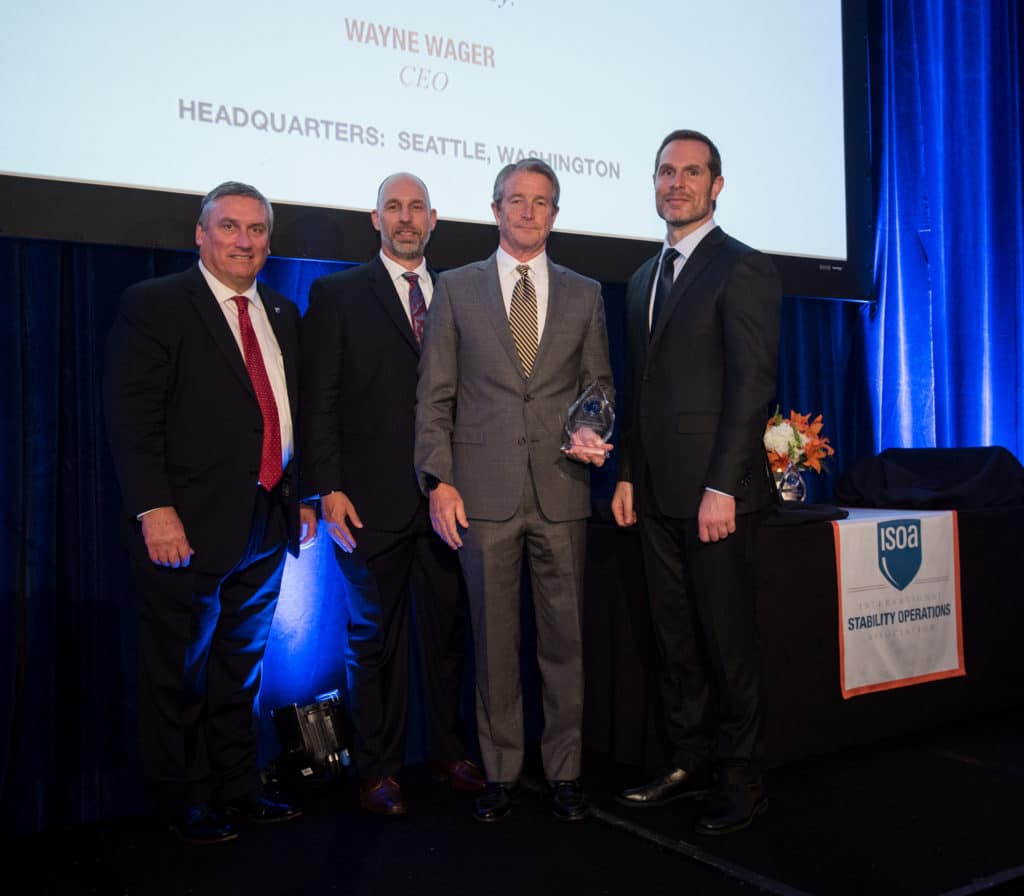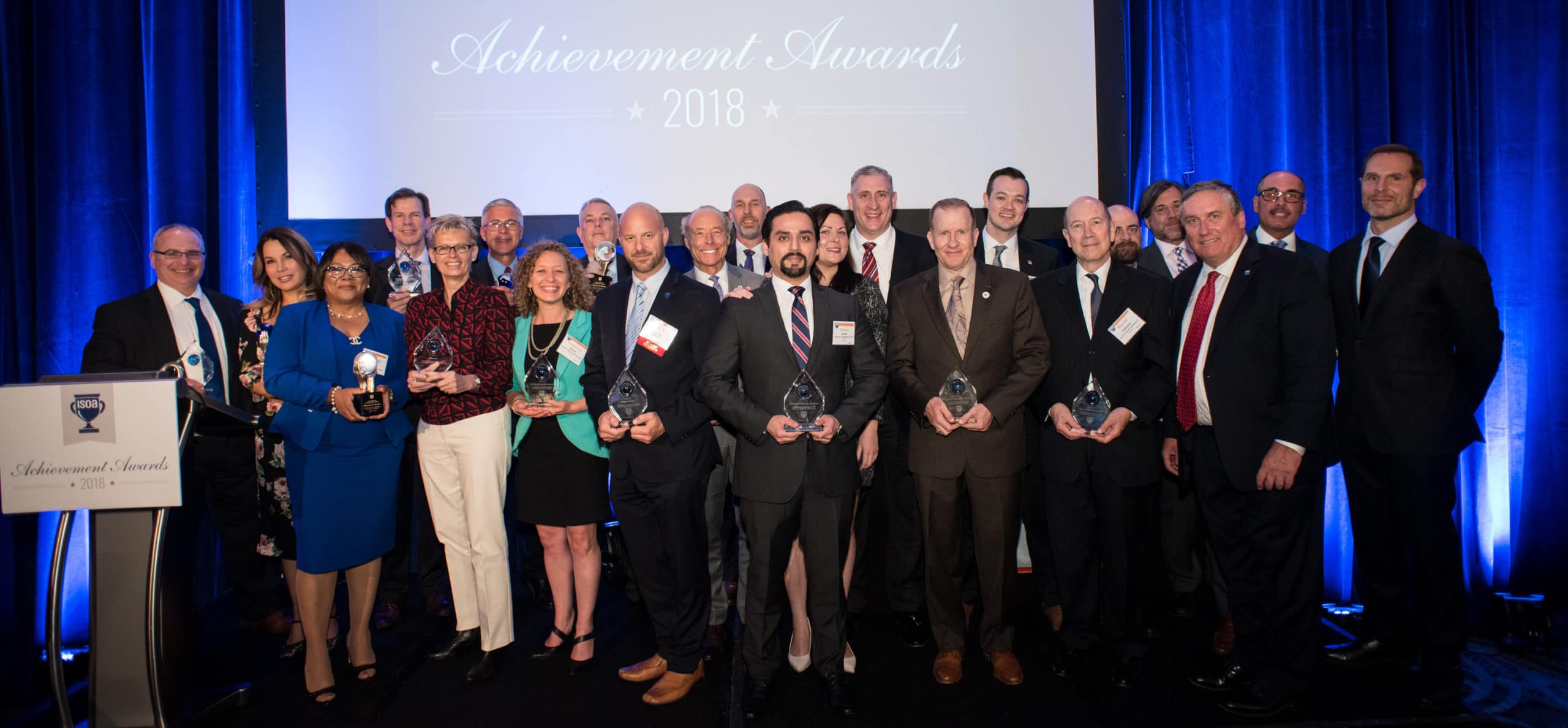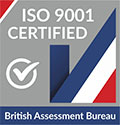
About the ISOA Achievement Award
The award is given to companies who consistently demonstrate commitment to accountability, transparency, and ethics in the stability operations arena. All award submissions were evaluated by an independent three-judge panel who expended considerable time and effort to carefully review all the award nominations. The nomination submitted by Remote Medical International detailed our work supporting humanitarian and capacity building operations in Africa and the Middle East.
“This event was tangible evidence of ISOA’s renewed vigor and sense of purpose,†says Gary J. Motsek, Deputy Assistant Secretary of Defense for Program Support. “The Defense Department and other government agencies need organizations like the ISOA to enable unity of purpose and promote high standards of conduct and product across the commercial support sector, and to provide responsive and effective points of communication between our total force contractor community and the Department of Defense.â€
Remote Medical International Award Submission
Below are a few examples from the nomination for the achievement award that Remote Medical International submitted. The nomination details our company history and examples of work we have done in the stability operations industry around the world.
Please provide a brief background/summary of your company. (Include number of employees, countries where you operate, core competencies, corporate initiatives undertaken in the last 3 years that serve to develop, align, and support these core competencies, and any other helpful background information.)
Remote Medical International is a leading provider of comprehensive medical support services for government and commercial clients operating both domestically and internationally. With a global footprint, we have supported mission readiness on a variety of base operations support, contingency, and training projects on five continents and the world’s oceans. With over 10 years of experience across 135 countries, and over 125 employees, we are dedicated to supporting government agencies and their contractors. Whether managing pre-deployment health screening, providing medical support on bases and at project sites, training soldiers and civilians in remote first aid, or distributing life-saving medicine, we have a history of delivering results.
Remote Medical International is also committed to constant improvement to ensure we are delivering the highest quality services to our clients. In just the past three years we have undertaken initiatives to strengthen operational and cultural ties between our staff in the field and our supporting teams, revised our medical protocols to stay at the forefront of medical care in remote, challenging, and industrial environments, and developed a three-year strategic plan to expand our capabilities for clients. We are dedicated to keeping our client’s workforce healthy, wherever they might be.
Citing recency with the last 3 years of operations and support, please provide a specific example of your company’s efforts and success in capacity building to, or advocacy for (which could include regulatory support), a Host Nation or fragile state where you currently operate and/or propose to have programs.
The International Police Peacekeeping Operations Support (IPPOS) program helps to fill a critical gap in policing and rule of law by building the capacity and effectiveness of countries that are deploying police to peacekeeping and stabilization missions. Remote Medical International’s client is responsible for providing IPPOS pre-deployment training, assessments, procurement, curriculum development, and refurbishment of facilities in Africa. Our role is to provide medical assistance and medical training to participants in the program. Subjects include first aid, first responder, casualty care, tactical training, VIP protection training, and HIV/Aids prevention. Over the past four years Remote Medical International medics have taught more than ten courses, in groups of up to 270 students.
This program supports police personnel who are deployed to peacekeeping activities in some of the most challenging conflict zones in Africa. Our CEO saw the value of our training on-site in Senegal in 2016. Our medic was training a class of police officers who were informed that they would be deployed the next day to a country where Peacekeepers had recently come under fire and suffered casualties. Our trainer immediately began working with the class on dealing with battlefield wounds, in particular how to improvise a tourniquet. These skills can make the difference between life and death on a peacekeeping deployment. Remote Medical International is proud to contribute to the IPPOS program and support our client in maximizing the effectiveness of these brave police peacekeepers as they help stabilize places that need it the most.
ISOA corporate members strive to “give back†to the local communities, and geographies in which they work. Describe philanthropic, volunteer, or training activities outside contract scope that your team has undertaken. Who benefits from this work? What impact has this work had and how has it been measured? How has this informed or inspired your work?
Remote Medical International has been operating on a variety of projects in East Africa since 2014. As it is both a company value and an integral part of successful project implementation to engage with locals, we have taken the opportunity to build close ties with local communities and civil society organizations while supporting a variety of local philanthropic activities. When Remote Medical International launched a major project in Kenya in 2014, our client also made clear that they expected us to make a significant contribution to the local community by hiring locally and assisting communities in times of need.
When  we took over medical services for the project, the workforce was 64% expatriate and 36% Kenyan nationals. Our client set a goal for us to ensure that 75% of the workforce was Kenyan by year three of the contract. The biggest hurdle was to find local nationals whose training and certifications met our high standards. We immediately began to work with local communities and medical organizations to build the local capacity required to achieve our goals. In partnership with the Kenya Council of EMTs, we designed a custom training and mentorship program that provided EMT certifications that met international standards—a first in Kenya. This work allowed us to fill 100% of the positions for this project with Kenyan nationals by the third year, exceeding our client’s goal.
In addition to building this local capacity, we have also implemented programs to provide direct support to local communities, including the donation of over $30,000 in medications to local clinics. Our staff have also rendered medical assistance to local communities when called upon, responding to snakebites, traffic accidents, and even injuries due to banditry. Our experience and success in this case has become a model for scaling similar efforts in the future and ensuring that wherever we go for our clients, we are creating value for the local communities as well.


